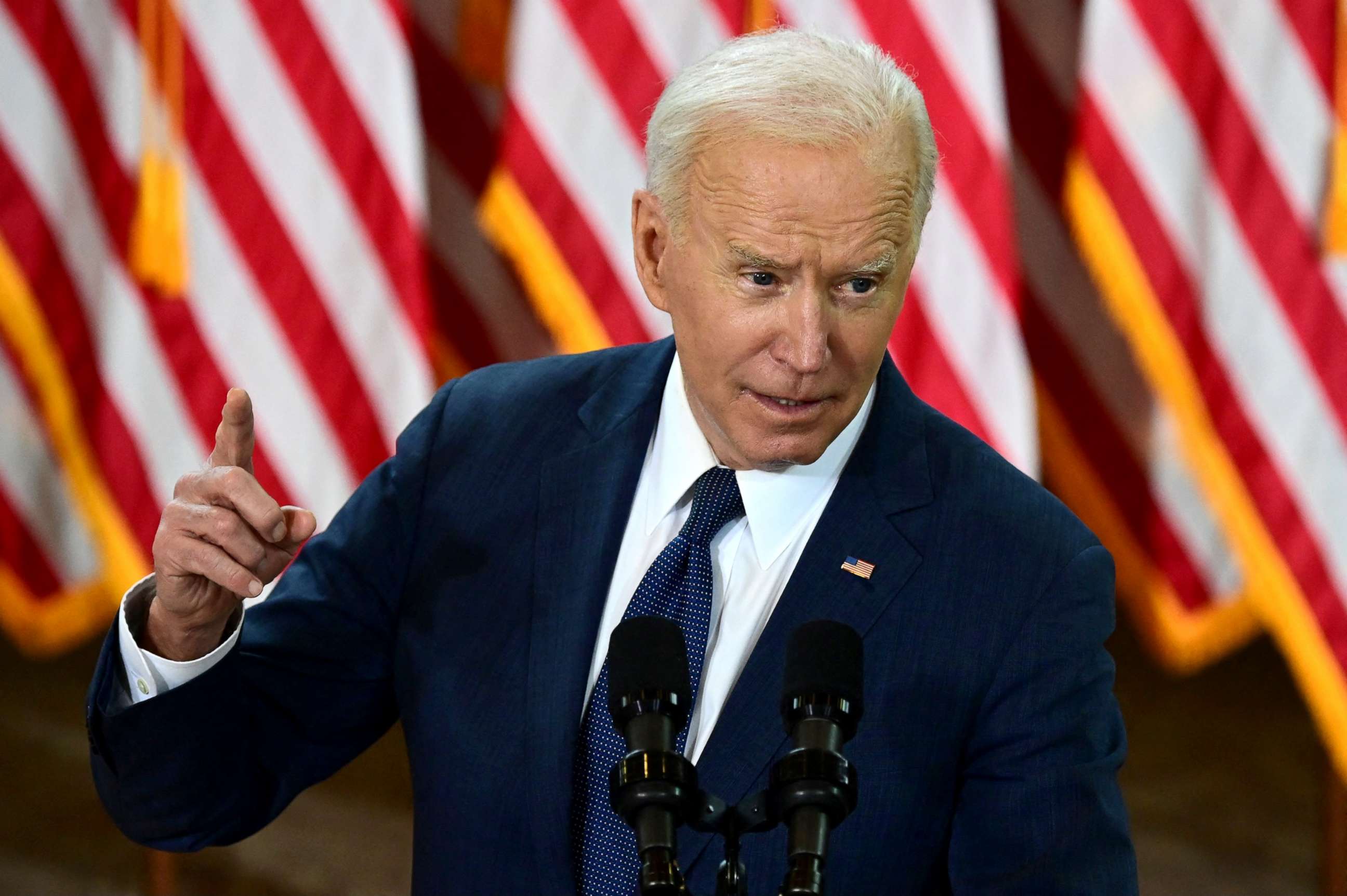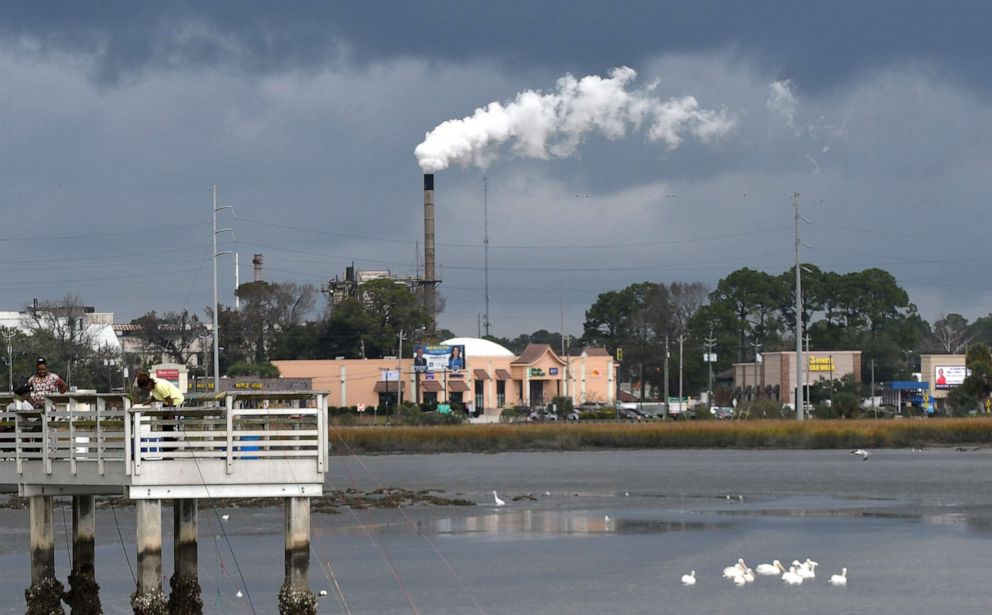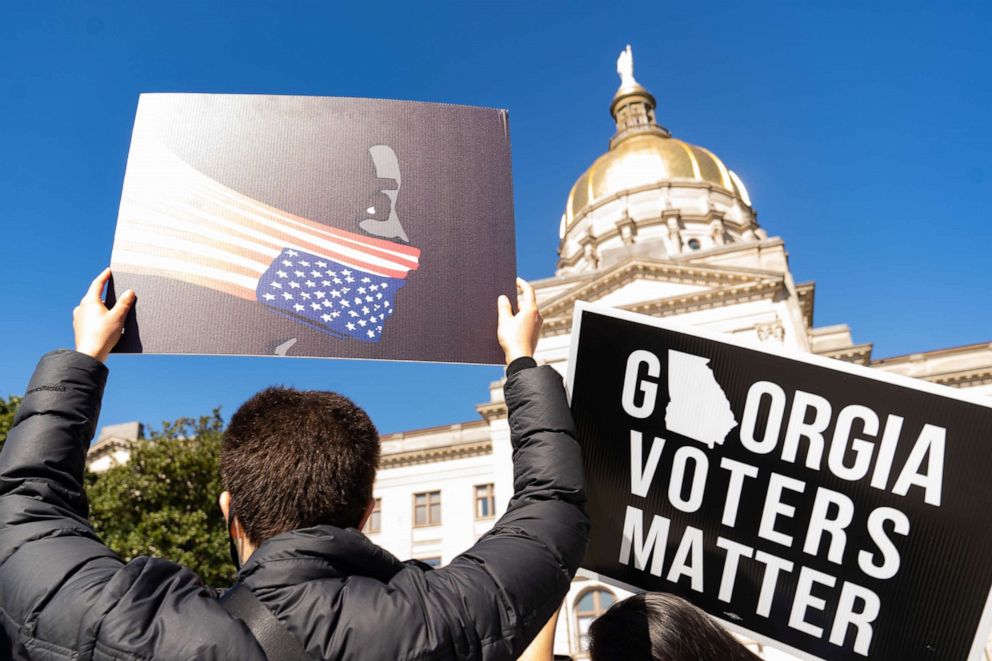Partisanship emerges as Biden's best hope for next phase of agenda: The Note
It's an odd goal, particularly after your campaign was built on working together
The TAKE with Rick Klein
It's an odd goal to aspire to, particularly after your campaign was built on unity and the promise of working together.
But the initial rollout of President Joe Biden's broadly structured and quite expensive infrastructure plan has made clear how much Biden's agenda from here relies on partisanship -- no, not its opposite.
Senate Minority Leader Mitch McConnell is trying to dispel any doubt about the possibility of Republican support for the president, calling Biden's a "bold, left-wing administration" on Thursday.
"I'm going to fight them every step of the way," said McConnell, R-Ky.

Lining up to oppose Biden continues to be a source of unity for the GOP. The White House and congressional Democrats know that, and while Biden can't and won't say he's not interested in pursuing Republican support, mechanisms are falling into place that will likely make it unnecessary.
That, though, doesn't make passing infrastructure or voting rights or immigration reform or gun legislation easy. Getting Rep. Alexandria Ocasio-Cortez to agree with Sen. Joe Manchin may be easier than securing McConnell's support, though not by much.
The refrain from the White House remains that Biden's big-ticket items are bipartisan because polling shows broad support for them. That notion will be tested as Democrats debate tax hikes and vast expansions of social programs basically among themselves.
Still, if Congress is going to pass those bills into law, it will be because Democrats are united behind a still-popular president and his initiatives -- not because Republicans are helping Biden out.
The RUNDOWN with Averi Harper
As Biden pushes his infrastructure plan, members of his administration are emphasizing aspects of it that address environmental racism.
"The impacts and pollution and the climate crisis disproportionately threaten the lives and livelihoods of Americans of color," said Catherine Lhamon, deputy director of the Domestic Policy Council for Racial Justice and Equity. "It is time for long overdue investments to tackle systemic racism and rebuild our economy and our social safety net so that every person in America can realize their full potential."

According to a study from the NAACP and the Clean Air Taskforce, African Americans are 75% more likely than white Americans to live in communities adjacent to businesses that produce hazardous waste. Another study found that Blacks and Hispanics are disproportionately exposed to polluted air.
Biden's plan aims to eliminate all lead pipes across the country, provide targeted investments in communities hard hit by natural disasters -- like flooding -- and mitigate impacts of pollution in communities of color where people are more likely to die of asthma than their white counterparts.
Some progressives argue the plan doesn't go far enough and Republicans have balked at the $2.5 trillion plan. Despite mixed feelings from lawmakers on the plan, the provisions of Biden's plan that aim to root out environmental inequity undoubtedly follow through on Biden's pledge to address racial disparities in all aspects of government.
The TIP with Quinn Scanlan
Following Georgia enacting a sweeping elections bill that critics have called "Jim Crow 2.0," the non-partisan Brennan Center for Justice released an updated analysis of state-level proposed legislation that contains provisions restricting voting access.
As of March 24, 361 such bills had been introduced in all but three state legislatures, according to its analysis; the states with the most restrictive bills are Texas, Georgia and Arizona. Georgia's 2021 regular session ended Wednesday, so there won't be any more legislative action from the Peach State soon -- though judicial action is already underway as three lawsuits have been filed seeking to block enforcement of the new law.

But in Texas and Arizona, bills are advancing. While most Americans were asleep Thursday morning, Republicans in the Texas senate advanced a bill that would ban drive-thru voting and limit early voting hours to between 6 a.m. and 9 p.m. Majority-minority Harris County, a Democratic stronghold, offered drive-thru voting and 24-hour early voting in November.
Debate started Thursday in the Arizona state house on a bill that would eliminate the "permanent" part of the state's early voting list by requiring election officials to remove any voters who don't respond to a notice after not voting early in at least one primary or general election over two cycles. After about 20 minutes of debate, the bill was retained and not voted on. It passed the senate already, but every Republican in the house must vote for the bill or it will fail.
THE PLAYLIST
ABC News' "Start Here" podcast. Friday morning's episode features ABC News' Kenneth Moton, who tells us about the emotional testimony on display during the first week of the Derek Chauvin murder trial. ABC News Chief Business and Economics correspondent Rebecca Jarvis explains how President Joe Biden's infrastructure plans factor into what could be a rebounding jobs market. And ABC News' Victor Oquendo joins us from Brazil, where COVID cases and deaths are skyrocketing. http://apple.co/2HPocUL
FiveThirtyEight's Politics Podcast. There isn’t typically a lot of high-profile election news in the year after a presidential election. The midterms are more than a year away, and the presidential primaries won’t really get underway until the midterms have passed. But there are still a number of contests to pay attention to in 2021. In this installment of the FiveThirtyEight Politics podcast, the crew discuss the 2021 gubernatorial elections in Virginia and New Jersey and the very likely recall election in California. They also look at mayoral elections, which are taking place in more than two dozen major cities, and special elections for a handful of vacant House seats. https://53eig.ht/3cG2eRG
WHAT YOU NEED TO KNOW THIS WEEKEND
Download the ABC News app and select "The Note" as an item of interest to receive the day's sharpest political analysis.
The Note is a daily ABC News feature that highlights the day's top stories in politics. Please check back Monday for the latest.




